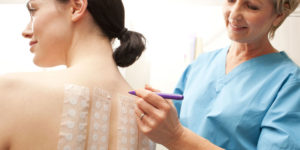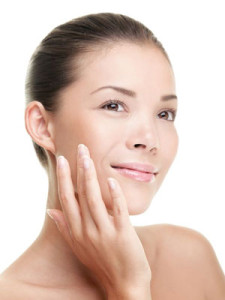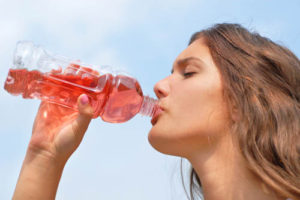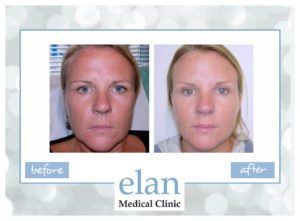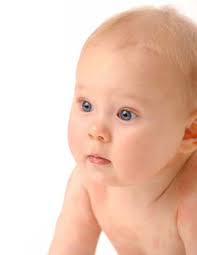Pregnancy is normally a time when you are radiating with excitement, yes? But when your pregnancy complexion doesn’t always reflect that inner joy it can dampen your spirits.
Worry not, for most you will find that these skin issues resolve themselves following the birth of your baby. Here are some of the most common skin problems women encounter during pregnancy—and what you can do about them.

Pregnancy should be a time of excitement
Skin Sensitivity
Go easier on your skin now that you’re pregnant. You might get red more easily if you use a facial scrub, your normal facial might verge on painful, and the perfumed lotion you wear might irritate your skin (and make you nauseated, but that’s a different story). That’s why many mums-to-be switch to unscented products and start choosing products that do not contain harsh chemicals, preservatives and fragrances. “You certainly don’t want anything causing micro-tears on your skin,” says Sue Ibrahim, our dermatology nurse consultant. “The more cuts and wounds on your skin, the easier it is for chemicals to be absorbed into your bloodstream. Ingredients to stay away from in soaps and body washes include sodium laureth sulphate, parabens and fragrance.” These ingredients aren’t just potential irritants—some say they could pose health risks to baby. We say believe it, because (not surprisingly) a lot of products aren’t tested directly on pregnant women. If you are using prescription topicals on your face you need to tell your doctor that you are pregnant as most prescription creams are not licensed for use during pregnancy either. At Elan Medical Skin Clinic we advise our patients to use our Elan Medical DermaCalm range during pregnancy, because they are free from fragrances and preservatives. They also contain mild anti-inflammatory ingredients that can soothe irritated skin.
Acne breakouts during pregnancy
During pregnancy your hormones are all over the place, and that might mean pimples like you had when you were a teenager. The cruel joke, of course, is that many of the treatments that are prescribed for acne cannot be used during pregnancy. Prescription medications like Tetracyclines, Isotretinoin (Roacutane(R)) and the anti-androgen hormone therapies are definite no-nos. And the jury’s out on over-the-counter creams, since they haven’t been tested specifically on pregnant women (yup, you find that a lot with products). Ingredients like benzoyl peroxide and salicylic acid can be absorbed into the bloodstream, so they’re not worth the risk either. “You can safely use lactic acid and biosulfur to treat acne,” Sue Ibrahim says. Don’t touch, pick or squeeze pimples— just wash with a mild cleanser twice a day. “A lot of women find Acne Phototherapy beneficial during pregnancy and it is perfectly safe for both you and the baby.
Sun Sensitivity
Sorry, mums-to-be, but “pregnancy glow” does not refer to a bronzed, sun-kissed complexion. You should actually try to stay out of the sun as much as you can while you’re pregnant. That’s because your surging hormones make you susceptible to dark patches on your skin—known as melasma, or the ‘mask of pregnancy’, which is triggered by sun exposure. So pull out the big floppy hat, find a beach umbrella and be diligent about wearing sunscreen with an SPF of at least 30 every day. If you are unlucky and do get Melasma during pregnancy it may resolve on its own following the birth of your baby, if not then you will need the help of a dermatologist I’m afraid.
Stretch marks
Now you’ve got another big skin concern: stretch marks. Anytime someone’s body grows quickly, they’re at risk for stretch marks, so the fact that baby is growing exponentially in there puts you right in the high-risk zone. Of course, not every mum-to-be gets stretch marks. “For most people, whether or not they get stretch marks has to do with genetic predisposition,” says Sue Ibrahim. But you can do your best to head them off by gently exfoliating and thoroughly moisturising your belly, boobs, stomach, hips and thighs as much as you can. As for what moisturizer to use, it’s hard to make a recommendation. “A lot of products make claims,” Sue Ibrahim says. “Some may help but aren’t really proven to prevent stretch marks.” If you are left with troublesome stretch marks following the birth of you baby, it is worth looking into the skin tightening treatments we offer at Elan Medical Skin Clinic.
Skin rashes during pregnancy
If you’ve got red, itchy skin, it’s important not to ignore it. Itchy feet and hands could be a sign of cholestasis of pregnancy, a scary complication that can cause liver problems for baby. Your doctor can do a simple blood test to make sure that’s not causing your rash. Another common pregnancy rash is PUPPP (pruritic urticarial papules and plaques of pregnancy), which often starts in the abdomen and spreads from there. PUPPP is actually harmless to baby, but it will be completely aggravating for you. Book in for a Dermatology Consultation if you are concerned.

